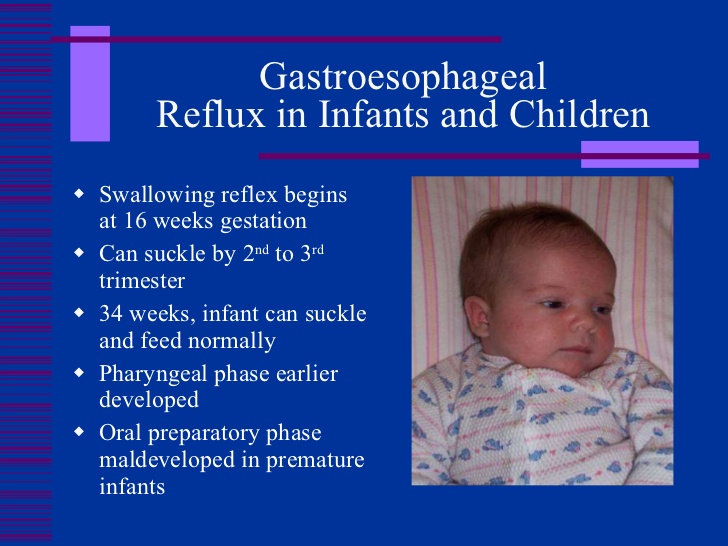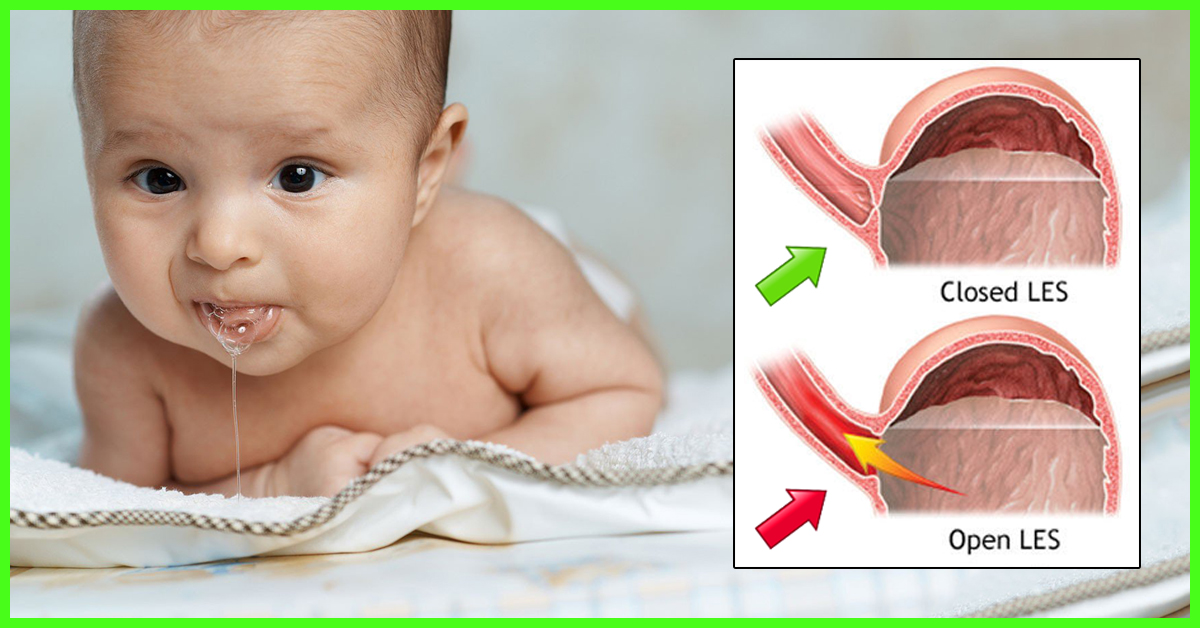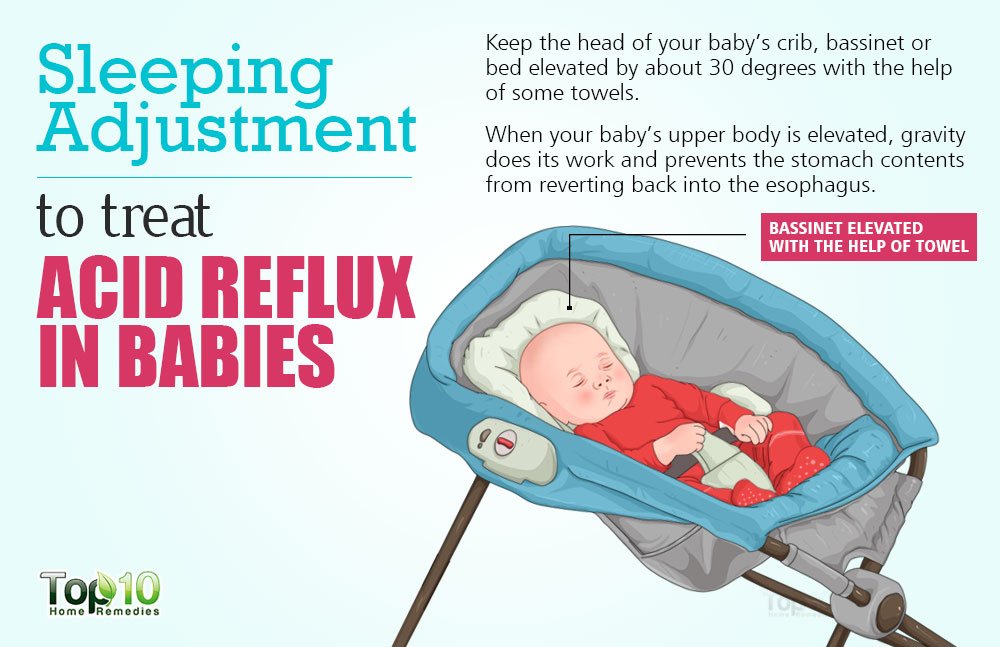Acid Reflux And GERD In Babies

Contents:
- Symptoms of GERD in Children
- Diagnosis of GERD in Children
- How to Get Rid of Acid Reflux
- Treatment of GERD tn Children
- Causes and Prevention of GERD
Acid Reflux in Baby
Acid Reflux, which is also called gastroesophageal reflux disease (GERD), is a common problem that may cause parental anxiety. Here are some pieces of advice how to treat acid reflux in children.
Symptoms of GERD in Children
First symptoms manifest themselves in dull pains in the upper part of the stomach and may get worse after eating. There may also appear asthma attacks. GERD in infants is characterized by frequent regurgitations, vomiting and poor weight gain. If the episodes become frequent and severe, the patient can be diagnosed for gastoesophageal reflux disease (GERD).
Symptoms are:
- regurgitation in infants;
- anxiety (crying, mood changes)
- growth retardation in babies (in cases of frequent and abundant regurgitation);
- older children may complain of burning sensation in the chest and bitter taste in the mouth.
Non-specific Signs of GERD in Children
- lack of appetite;
- bad breath;
- frequent hiccups;
- gasp;
- cough;
- voice changing;
- difficult swallowing;
- frequent otitis.
Diagnosis of GERD in Children
The main methods of diagnosing are esophagogastroduodenoscopy (EGD) and radiographic contrast study of the gastrointestinal tract.
At the initial stage, GERD is characterized by the appearance of distal esophageal erosion.
Further, the inflammations accumulate in one area.
At the final stage, the inflammation enfolds the entire area of mucosa and it leads to ulceration. On the fourth stage of GERD the patient may have ulcers in the esophagus, metaplasia of the mucous of the esophagus (Barrett’s esophagus), and stenosis.
How to Get Rid of Acid Reflux

Recommendations:
- eat frequent and smaller portions;
- children suffering from reflux should avoid body bending, lifting heavy weights and jumping, especially after eating;
- eat dinner no later than 3 hours before bedtime;
- avoid horizontal body position after eating;
- do not wear tight belts;
- limit the consumption of coffee, chocolate, fatty, spicy and fried food, dried fish, dried fruits and carbonated drinks;
- avoid smoking (passive smoking);
- It is also recommended to use a chewing gum after meals. It will increase the amount of saliva, which cleans the esophagus from the gastric juice.
Children diagnosed for GERD may suffer from heartburn, which lasts for 2-4 hours. In these cases, it is recommended to raise the bed-head for lifting up the head level. It will prevent the flow of the gastric juice backwards into the esophagus. Medical treatment is prescribed individually after medical examination.
Treatment of GERD in Children
Infants commonly grow out of GERD by the age of 1 year old due to the maturation of the gastrointestinal tract. If the attacks of GERD are frequent and abundant and lead to physical developmental delays, it may be diagnosed as GERD. In these cases, the pediatrician prescribes a medical therapy, changing in diet and further examination.
Medical Therapy for Treating GERD in Children
The light form of GERD is treated with over-the-counter medications, which contain Antacids (acid neutralizers) and Histamine H-2 receptor Antagonists (acid blockers). The proper diet is also necessary.
Antacids are used for quick reversal of reflux symptoms. However, such drugs neutralize the gastric juice only for a short period. The antacid drugs are Tums, Maalox, and Mylanta.
Histamine H-2 receptor Antagonists neutralize the gastric juice for a longer period, but they are considered to be ineffective in contrast to Proton Pump Inhibitors (PPIs). Histamine drugs are Ranitidine, Cimetidine, Nizatidine and Famotidine. These drugs should be taken orally by one tablet two times a day; they can be purchased in a drugstore without a prescription.
Causes and Prevention of GERD

Gastroesophageal Reflux Disease is a constant gastroesophageal reflux of stomach contents into the esophagus that is also accompanied by the inflammation of the esophagus (esophagitis).
The most common causes of GERD are the anatomical abnormalities in the area of transition of the stomach into the esophagus (e.g. hiatal hernia), impaired autonomic neural control, inflammations of the stomach (peptic ulcer, gastritis), improper feeding (systematic overeating) and particular medications use.
Causes of GERD
Causes in infants are:
- immaturity of the digestive tract;
- improper feeding (aerophagia – excessive air swallowing during feeding);
- excessive amount of food (excess of mother's milk);
- inheritable or acquired pathology of the digestive system.
Prevention
Recommended:
- Feed the baby frequent and with small portions.
- Lay the baby on his stomach before feeding. It promotes the passage of flatus.
- Make the food thicker.
- Keep the baby in elevated position during feeding.
- Avoid pressing on the baby’s stomach during feeding. Do not swaddle the baby tight.
- Hold the baby upright for 20-30 minutes after a feeding to let the swallowed air out.
- Put the baby on his side during sleeping.